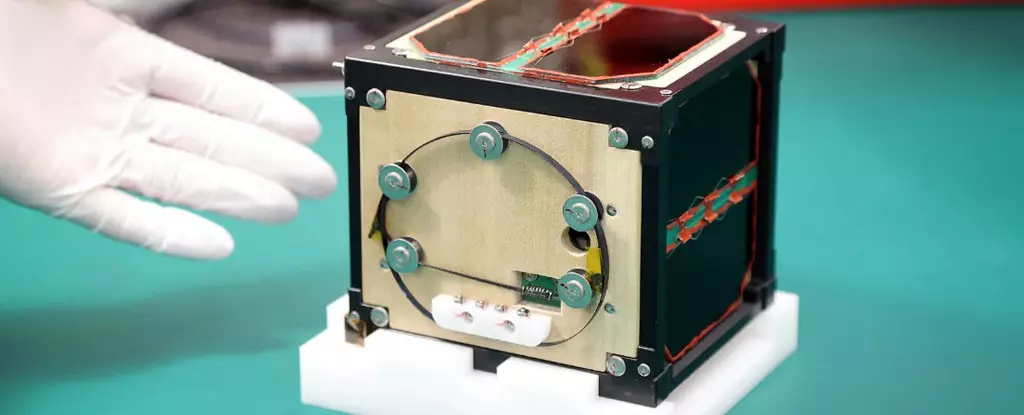In a groundbreaking development, Japanese researchers have successfully created the world’s first wooden satellite. This innovative creation, a tiny cuboid craft, is set to be launched into space on a SpaceX rocket in September. The satellite, developed by scientists at Kyoto University in collaboration with Sumitomo Forestry, marks a significant milestone in space technology.
Measuring just 10 centimeters on each side, the wooden satellite, named LignoSat, is constructed from magnolia wood. The use of wood as a material for satellites presents a sustainable alternative to traditional metal satellites. When the wooden satellite re-enters the Earth’s atmosphere, the creators anticipate that it will burn up completely. This approach aims to avoid the generation of metal particles, which could have detrimental effects on the environment and telecommunications.
According to Takao Doi, an astronaut and special professor at Kyoto University, satellites made from non-metal materials should become the standard in space exploration. The development of wooden satellites opens up possibilities for reducing space debris and minimizing environmental impact. However, there may be challenges associated with the durability and performance of wooden satellites compared to their metal counterparts.
The wooden satellite will be handed over to the Japan Aerospace Exploration Agency (JAXA) for further testing and evaluation. It is scheduled to be launched from the Kennedy Space Center on a SpaceX rocket, heading to the International Space Station (ISS). Once in space, the satellite will be released from the Japanese ISS experiment module to undergo rigorous testing of its strength and durability.
In addition to the wooden satellite project, a rocket carrying a sophisticated satellite developed by the European Space Agency (ESA) and JAXA recently launched from California. The EarthCARE satellite, designed to study the role of clouds in climate change, will orbit the Earth for three years, collecting valuable data for scientific research.
The introduction of wooden satellites represents a significant advancement in space technology. As researchers continue to explore unconventional materials and innovative designs, the possibilities for sustainable and efficient satellite technology are expanding. The successful launch and operation of the wooden satellite will pave the way for future developments in space exploration and environmental sustainability.


Leave a Reply